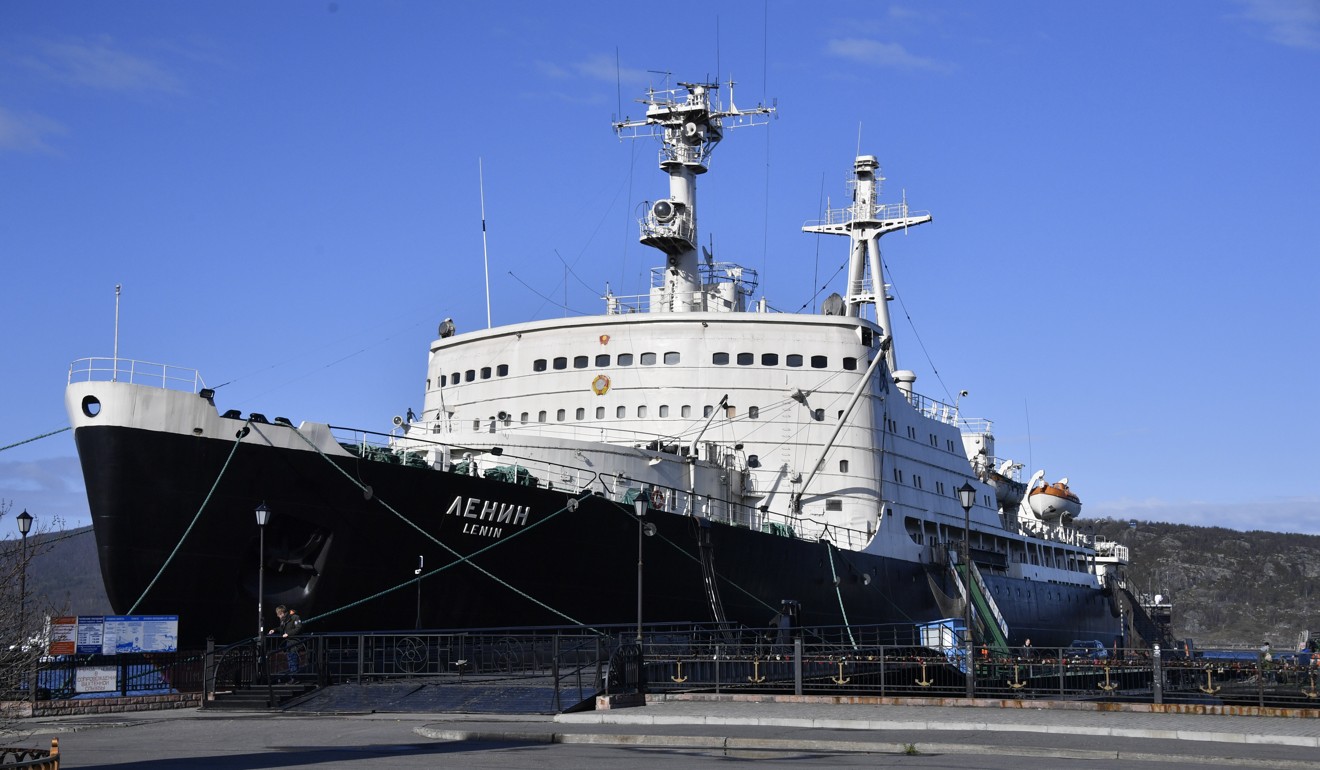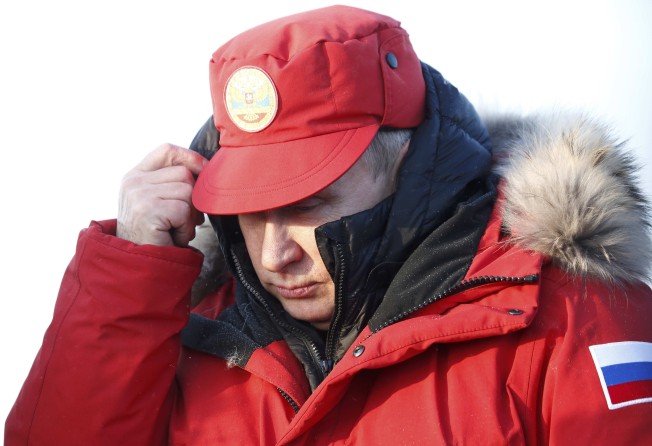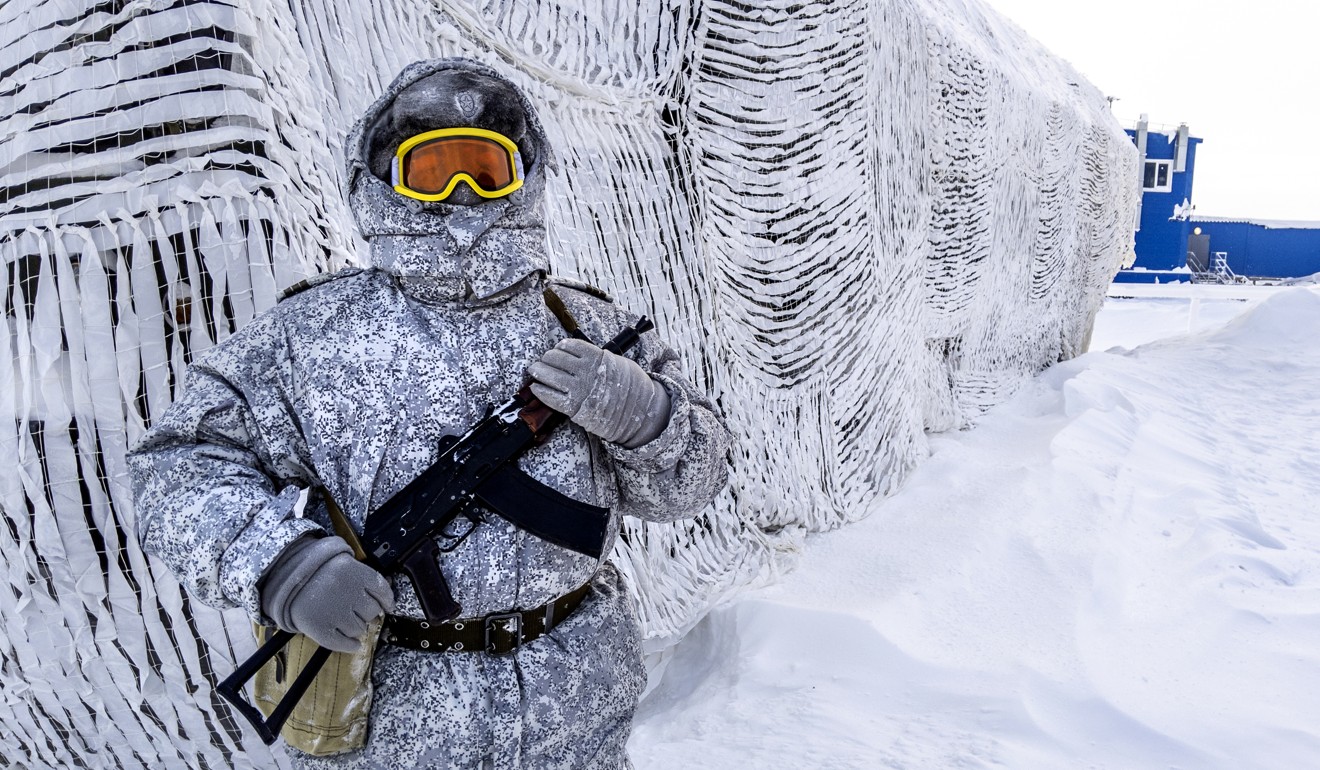
Vladimir Putin boasts of growing nuclear icebreaker fleet as he outlines Russia’s ambitious Arctic expansion plans
- Russia, which has about half the Arctic coastline, is building new bases and stepping up air and naval activity in the region
- By 2035, Russia stands to have a fleet of 13 heavy icebreakers, including nine nuclear-powered ones,

President Vladimir Putin has put forward an ambitious programme to secure Russia’s foothold in the Arctic, including efforts to build new ports and other infrastructure facilities and expand an icebreaker fleet.
Speaking at the Arctic forum in St. Petersburg attended by leaders of Finland, Iceland, Norway and Sweden, Putin said that Russia plans to dramatically increase cargo shipments across the Arctic sea route.
He said that the amount of cargo carried across the shipping lane is set to increase from 20 million metric tonnes last year to 80 million tonnes in 2025.
“This is a realistic, well-calculated and concrete task,” Putin said.
“We need to make the Northern sea route safe and commercially feasible.”
He noted that Russia, the only nation with a nuclear icebreaker fleet, was moving to expand it.
China will soon start building a 30,000-tonne nuclear-powered ship, described in the tender documents as an “experimental platform”.
Russia currently has four nuclear icebreakers, and Putin said that three new such ships are currently under construction.
By 2035, Russia stands to have a fleet of 13 heavy icebreakers, including nine nuclear-powered ones, he said.
The Russian leader said that Russia plans to expand the ports on both sides of the Arctic shipping route – Murmansk on the Kola Peninsula and Petropavlovsk-Kamchatsky on the Kamchatka Peninsula – and invited foreign companies to invest in the reconstruction project.
Other ports and infrastructure facilities along the route will also be upgraded and expanded, he said.
Russia, the US, Canada, Denmark and Norway have all been trying to assert jurisdiction over parts of the Arctic as shrinking polar ice creates new opportunities for resource exploration and new shipping lanes.

Speaking at the forum, Norwegian Prime Minister Erna Solberg emphasised the need to respect international law and noted that the Arctic Council provides a key arena for dialogue.
“Now and then I hear the Arctic described as a geopolitical hotspot,” she said.
“This is not how we see it. We know the Arctic as a region of peace and stability.”
The Russian military has revamped and modernised a string of Soviet-era military bases across the polar region, looking to protect its hold on the region, which is believed to hold up to one-quarter of the Earth’s undiscovered oil and gas.
Addressing the forum, Russian Foreign Minister Sergey Lavrov said that military deployments in the Arctic were intended to protect national interests.
“We ensure the necessary defence capability in view of the military-political situation near our borders,” Lavrov said, noting that a recent Nato exercise in Norway was openly directed against Russia.
Russia’s relations with the US and other Nato allies have plummeted to post-cold war lows over Russia’s annexation of Ukraine’s Crimea, the war in Syria, Moscow’s meddling in the 2016 US presidential election and other issues.

Putin used the forum to criticise the US and the EU sanctions against Russia over its action in Ukraine, but insisted that they wouldn’t hamper the country’s plans to expand its presence in the Arctic.
He charged that the US has used the economic restrictions as a tool to protect its economic interests, citing Washington’s opposition to a prospective pipeline under the Baltic Sea that would carry Russian gas to Germany as an example.
The Russian leader emphasised the challenges to the polar region posed by global warming, saying that Russian scientists believe that the climate was changing faster than indicated by earlier estimates.
Putin said that Russia has fulfilled its obligations under an international agreement aiming to limit global warming by cutting emissions of greenhouse gases, noting that the US has opted out of the pact.